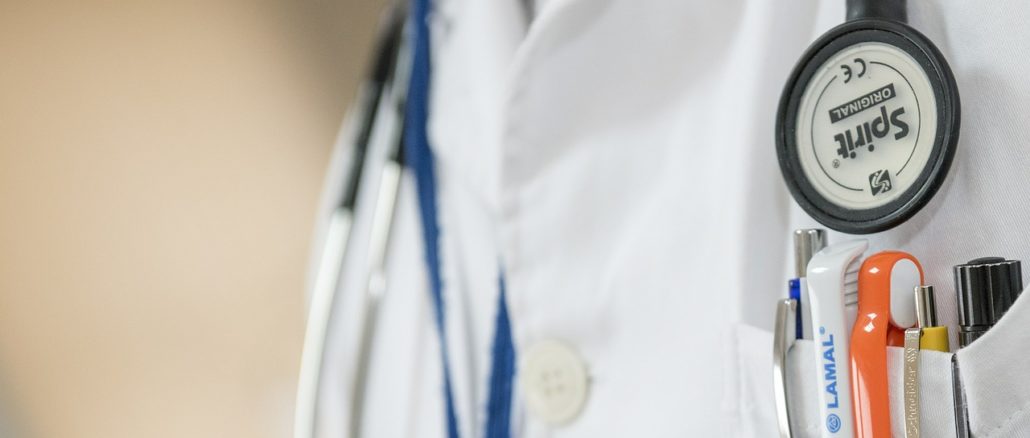
This advertising makes North Forty News possible:
A Fort Collins family has teamed up with a small group of parents to launch a fundraiser to fund the research and development of a life-changing gene therapy treatment for FRRS1L gene disorder. FRRS1L is a protein-coding gene that affects the messaging between cells in the brain and results in regression and loss of function in children.
The FRRS1L gene disorder, which takes full effect in children around age 2, results in seizure activity that causes regression in the child. Within months, or even weeks, children lose their ability to move, speak, feed orally, and control their head and their body.
The local champion for this fundraiser is Fort Collins resident Chrissy Green. Green’s 3-year-old daughter, Everly, was diagnosed with this rare genetic disorder and started experiencing seizures and regression right after her second birthday.
Support Northern Colorado Journalism
Show your support for North Forty News by helping us produce more content. It's a kind and simple gesture that will help us continue to bring more content to you.
BONUS - Donors get a link in their receipt to sign up for our once-per-week instant text messaging alert. Get your e-copy of North Forty News the moment it is released!
Click to Donate“Everly was our speedy girl, and it’s difficult to watch before and after videos of her condition. Within just two weeks after her first seizure, Everly lost her mobility and her independence. Within just months she had gone from racing around the house to completely immobile,” said Green, who moved her family to Fort Collins, Colo. just over a year ago due to the medical facilities and family support in Colorado.
“When Everly was around 6-months-old we started to notice delays in her development, she wasn’t rolling over or moving as much as we had expected, and she had an inward turning eye which triggered a visit to a neurologist,” said Green. “After seeing various doctors and running every test we could, we finally did a full genetic scan that resulted in us receiving the FRRS1L diagnosis 6 months before Everly’s second birthday.”
Desperate for answers and support, Green joined a Facebook group of parents who were also dealing with the effects of the FRRS1L disorder, and it was through that group that Green partnered up with two other mothers to search for the possibility of treatment through gene therapy. It seemed like an impossible hope, but they were able to get in contact with one of the top gene therapists at the University of Texas Southwestern.
“We spoke to a gene therapy doctor who told us about new research that has come out specifically on FRRS1L gene disorder, that revealed through mouse modeling that gene replacement therapy restored function in the mice, and even more promising was that there was new cell growth as a result,” said Green. “If you asked me two months ago if Everly would ever regain her health, or even just stop the debilitating seizures causing the regression, I would have said probably not. But now, after years of walking this journey of loss and sadness with our friends and family, we’re finally able to walk with hope and encouragement. There is a real possibility of a cure to heal our kids.”
An estimated $400,000 will fund the pre-clinical research required to develop treatment. Then the group will pursue FDA approval to begin clinical trials of FRRS1L gene replacement therapy, at which point additional funding sources may become available for the higher cost of trials.
“We launched the Finding Hope for FRRS1L online fundraiser last Sunday with the goal of raising $100,000 in 30 days, but instead we raised $100,000 in the first 24 hours. We’re thrilled to announce we have now passed the $280,000 mark. This is all because of family, friends, and even strangers seeing our kids’ smiles and struggles and donating out of love and hope.”
The online fundraiser, Finding Hope for FRRS1L, has received more than 650 donations and has raised 61% of its goal.
Green’s goal isn’t just to raise money, it’s also to raise awareness of FRRS1L and other rare genetic disorders in order to help with diagnosis and treatment development. Green said, “We have seen within our parent group that FRRS1L gene disorder children come from many people groups, causing us to think there are many more children out there around the world that have yet to be diagnosed or have been misdiagnosed.”
“These are just our little kids inside. They want to play and interact, and they just physically can’t do it on their own. Everly shows us she’s still in there, she just doesn’t have control over her body. That’s the hardest part, we know our kids are inside, and we just want to help them regain control of their lives.”
With the support of friends, family, and even medical providers, Green is optimistic about the fundraiser.
“Unfortunately, I never got to meet Everly before seizures took away her ability to speak or even hold her head up. I met Everly and her family after they moved to Colorado, and unfortunately, have witnessed her further decline as seizures wreak havoc on her body,” said Dr. Amy Bailey of The Youth Clinic (TYC), Everly’s pediatrician since the Greens moved to Colorado.
“FRRSL1 gene disorder currently has no specific treatments and unfortunately the seizures are difficult to manage with our current medications. With each seizure, children suffering from FRRSL1 gene disorder experience further regressions in their development,” said Dr. Bailey.
“It has only been in recent years, that we have identified that a loss of function mutation in the FRRSL1 gene leads to a form of early encephalopathic epilepsy. Gene therapy could offer families suffering from this illness hope for treatment. With community support, fundraising, and research, I am hopeful that we can find other treatment options for families.”
Learn more about Everly’s condition and follow along with her process on Instagram at instagram.com/everlyshope.
Donations can be made online at www.FRRS1L.org. An estimated $400,000 will fund the research required to get FDA approval to begin clinical trials of FRRS1L gene replacement therapy, at which point additional funding sources may become available for the higher cost of trials.
FRRS1L gene is a protein-coding gene contained in all cells of the brain. It helps build key components of the ampa receptor that get produced to sit outside the cell and send messages between cells. FRRS1L gene disorder results from a mutation and the resulting loss of function of the FRRS1L gene. FRRS1L disorder causes the messages in the brain to not get through from one cell to another. These messages affect all areas of function and life for the child. The resulting disorder produces epilepsy, progressive dyskinesis (abnormal movements), developmental delay, diffuse hypotonia, cortical and cerebellar volume loss, gradual loss of responsiveness to the environment. Current research shows children from birth to two years old having developmental delays, but still gaining abilities, and then at age two begin having seizures that cause regression, and quick loss of function and/or abilities.
For more detailed information on FRRS1L gene disorder and the doctor who will be heading the development of this treatment, please see the below research studies and links:
The Youth Clinic specializes in the treatment of infants, children, and young adults. It has cared for generations of area youth for more than 50 years and takes pride in its role as both partner and resource to parents in the development of their children. The Youth Clinic conveniently offers four office locations on the north and south side of Fort Collins as well as at the Medical Center of the Rockies in Loveland and just off I-25 and Harmony Road in Timnath. For more information about the services and care The Youth Clinic provides and to schedule appointments, visit The Youth Clinic website at www.youthclinic.com or call 970-267-9510.
